443
11 things that we're lying labels
Seventy four million two hundred thirteen thousand five hundred fifty eight
Shelves in supermarkets are literally bursting with all kinds of goods, but choose the suitable ones is not so easy. After all, not all what is stated on the label, true.
Today, the Website will talk about marketing tricks that make us to commit waste and not buy the most useful products.
The name includes ingredients that a product is almost no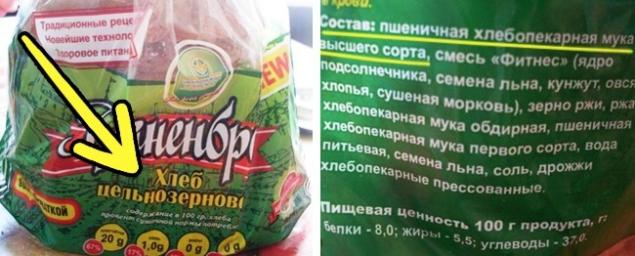
That is the formal manufacturer is not deceiving you. But there is a sausage called "Beef", in which only 2-3 % of beef, and the rest is poultry meat mechanically separated (trimming, passed through the press), not very nice. Bread, which is claimed as a whole grain, it can be made from flour, and the proportion of whole wheat in its composition will be very small.
Vegetable products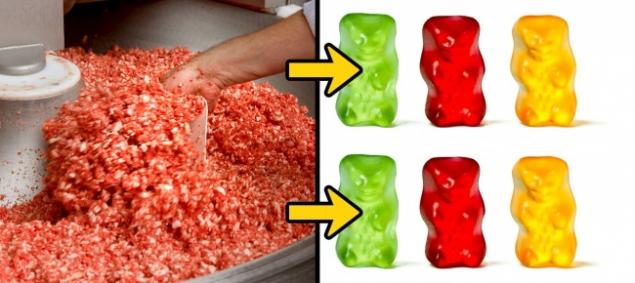
Some products are, by default, lean (dark chocolate, white and black bread, pasta). So the sticker "Perfect for post" they are nothing more than a ploy. But sometimes products are marked as lean, and as such can not be. For example, the marmalade, if its use is not vegetable agar-agar, and gelatin.
Surfactants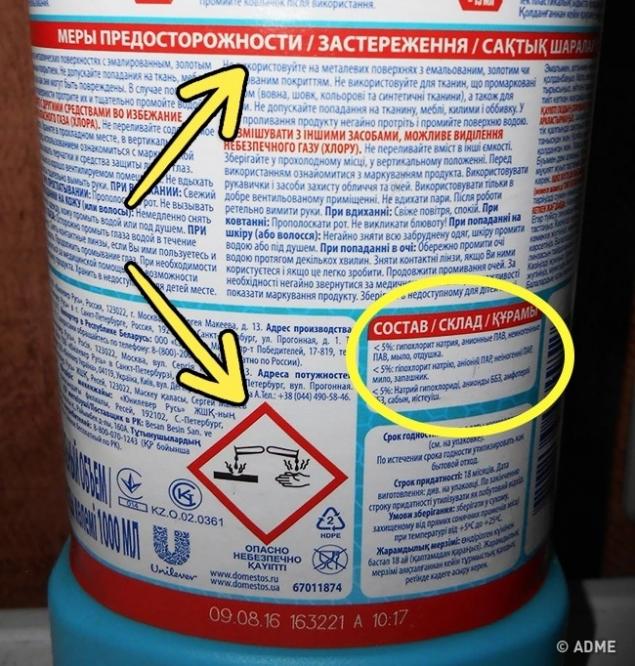
Surface-active substances (surfactants) are contained in household chemicals and dangerous because it can cause skin irritation, and the manufacturer is obliged to indicate on the label. But it often turns out that the most harmful components of cleaning products written in very small font on this background that the text is almost unreadable.
Baby products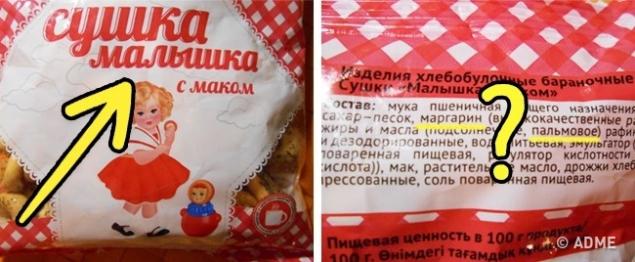
To make people more willing to buy the products, they can be described as children, and therefore safe. For this purpose, the packaging with the image of cartoon characters and names such as "Baby", "Baby". But in some of these products contain components that are children is contraindicated. For example, sodium glutamate, phosphates, margarine, and excessive amount of sugar.
GOST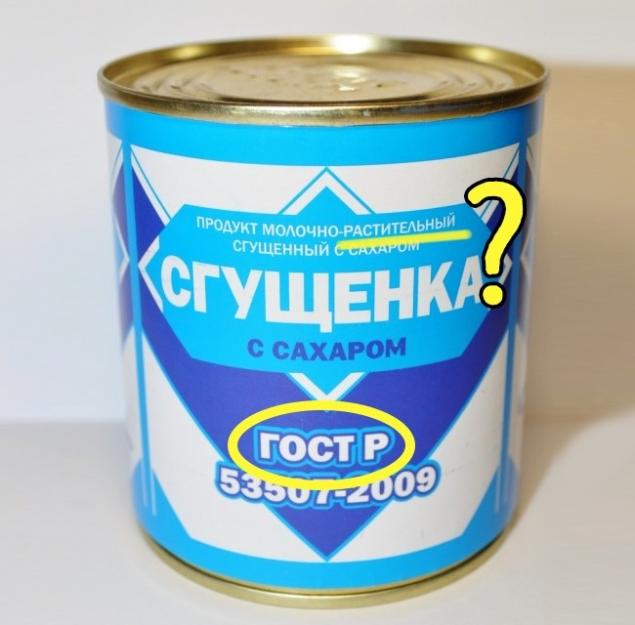
Modern Standards to a marketing ploy, because the standards were much reduced, supplemented, and rewritten repeatedly, which is used by manufacturers. For example, if the condensed milk made by the old Standards, had in its composition of vegetable fats, it is now a national standard allowing the use of them.
"No cholesterol"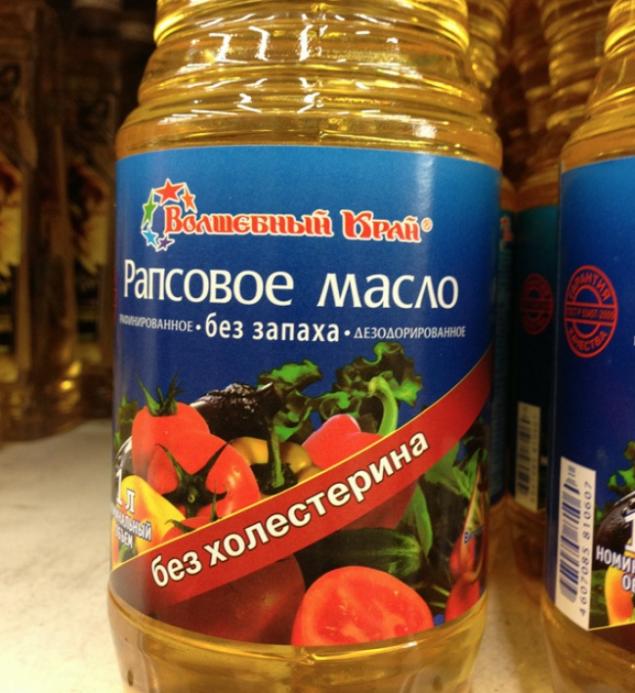
Cholesterol is found in foods of animal origin. Therefore, specify on the bottle of vegetable oil "cholesterol free" makes no sense, because it should not be there in any case. This is pure marketing ploy, calling us to pay more for supposedly more healthy product.
The names of the manipulators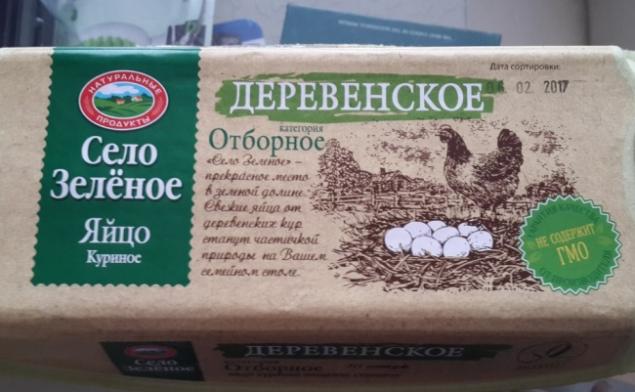
Calling their products "Rustic", "home", "Granny-Like", the manufacturer suggests that they are made with love. But the name does not guarantee a "home" taste. Milk in any case be pasteurized, and the bright yolk "village" of eggs is not always about good conditions of chickens — some manufacturers simply add dyes to the feed.
The content of vitamins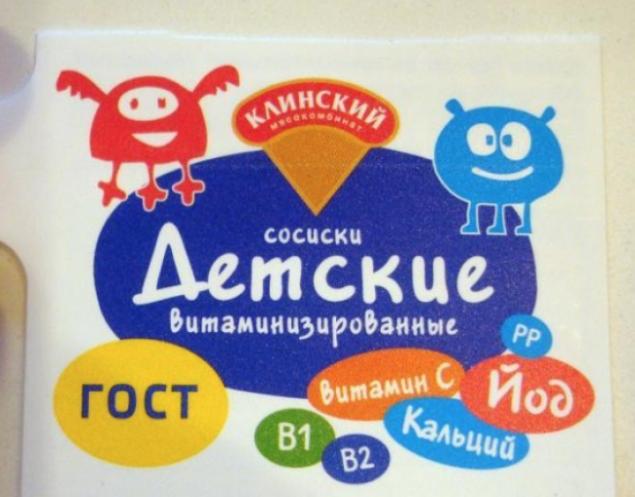
Most of the products themselves contain vitamins and minerals, so there is no need to specify them separately as something extraordinary. Useful, they definitely will not, but it certainly will affect their price. After all, many buyers prefer "vitamin" milk or vegetable oil conventional, even if these "vitamins" will have to pay.
Fat product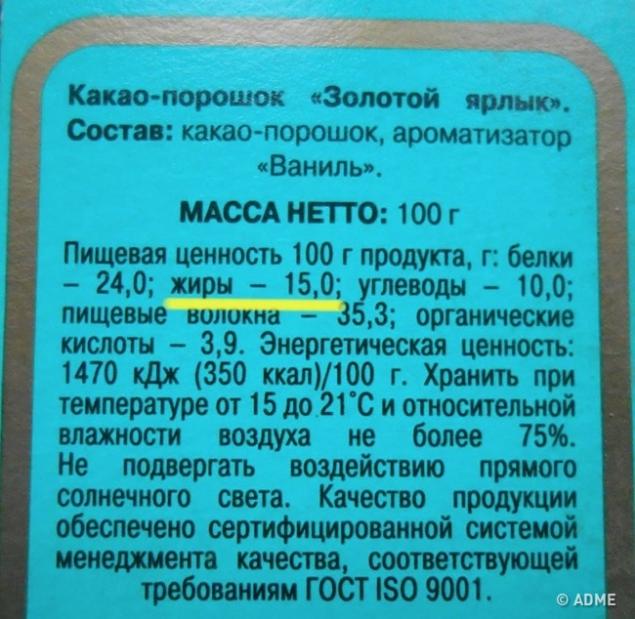
Often low fat foods contain large amounts of sugar — this is done in order to preserve their taste. And some food and not have to have low fat content. For example, the quality fat content of cocoa powder may not be less than 15% is due to the presence of cocoa butter, without which the product turns into a surrogate.
"Sugar free"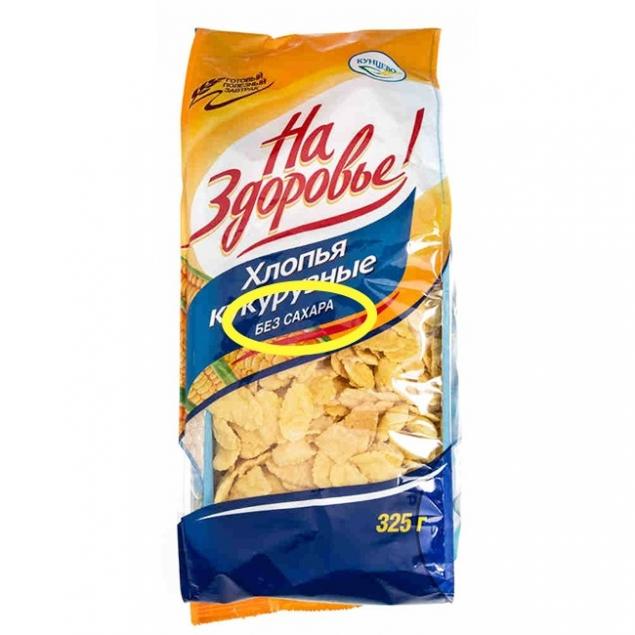
The words "No sugar" means that it was replaced with fructose, corn syrup or the artificial stuff like aspartame. Moreover, the number of these substitutes can be so that, perhaps, this sugar would be safer. As for aspartame, its use is contraindicated in patients with phenylketonuria — this manufacturers are required to list on the label.
Marking "Eco"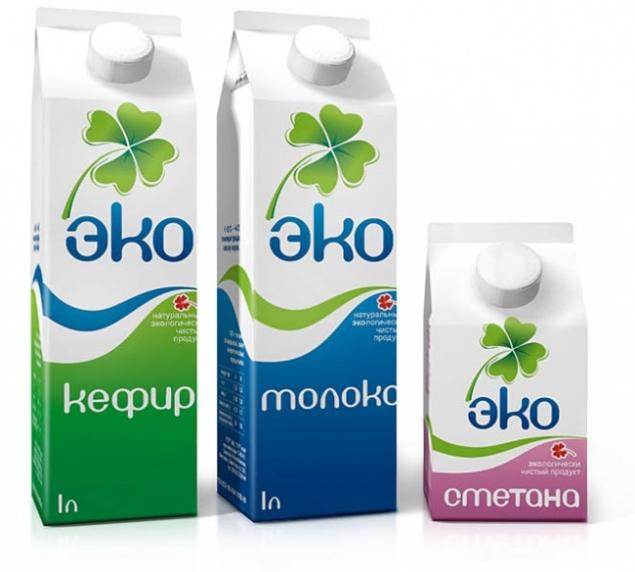
The real organic food producers are required to have a certificate confirming that they were made with observance of all standards. But, unfortunately, such rules are not legal in all countries than used by unscrupulous manufacturers, placing on their quite ordinary goods marked "Eco" and artificially increasing the price.
Photos on the preview Maxfromhell/depositphotos.com EAST NEWS
via www.eastnews.ru/pictures/picture/id/51282493/i/39/t/69
Shelves in supermarkets are literally bursting with all kinds of goods, but choose the suitable ones is not so easy. After all, not all what is stated on the label, true.
Today, the Website will talk about marketing tricks that make us to commit waste and not buy the most useful products.
The name includes ingredients that a product is almost no

That is the formal manufacturer is not deceiving you. But there is a sausage called "Beef", in which only 2-3 % of beef, and the rest is poultry meat mechanically separated (trimming, passed through the press), not very nice. Bread, which is claimed as a whole grain, it can be made from flour, and the proportion of whole wheat in its composition will be very small.
Vegetable products

Some products are, by default, lean (dark chocolate, white and black bread, pasta). So the sticker "Perfect for post" they are nothing more than a ploy. But sometimes products are marked as lean, and as such can not be. For example, the marmalade, if its use is not vegetable agar-agar, and gelatin.
Surfactants

Surface-active substances (surfactants) are contained in household chemicals and dangerous because it can cause skin irritation, and the manufacturer is obliged to indicate on the label. But it often turns out that the most harmful components of cleaning products written in very small font on this background that the text is almost unreadable.
Baby products

To make people more willing to buy the products, they can be described as children, and therefore safe. For this purpose, the packaging with the image of cartoon characters and names such as "Baby", "Baby". But in some of these products contain components that are children is contraindicated. For example, sodium glutamate, phosphates, margarine, and excessive amount of sugar.
GOST

Modern Standards to a marketing ploy, because the standards were much reduced, supplemented, and rewritten repeatedly, which is used by manufacturers. For example, if the condensed milk made by the old Standards, had in its composition of vegetable fats, it is now a national standard allowing the use of them.
"No cholesterol"

Cholesterol is found in foods of animal origin. Therefore, specify on the bottle of vegetable oil "cholesterol free" makes no sense, because it should not be there in any case. This is pure marketing ploy, calling us to pay more for supposedly more healthy product.
The names of the manipulators

Calling their products "Rustic", "home", "Granny-Like", the manufacturer suggests that they are made with love. But the name does not guarantee a "home" taste. Milk in any case be pasteurized, and the bright yolk "village" of eggs is not always about good conditions of chickens — some manufacturers simply add dyes to the feed.
The content of vitamins

Most of the products themselves contain vitamins and minerals, so there is no need to specify them separately as something extraordinary. Useful, they definitely will not, but it certainly will affect their price. After all, many buyers prefer "vitamin" milk or vegetable oil conventional, even if these "vitamins" will have to pay.
Fat product

Often low fat foods contain large amounts of sugar — this is done in order to preserve their taste. And some food and not have to have low fat content. For example, the quality fat content of cocoa powder may not be less than 15% is due to the presence of cocoa butter, without which the product turns into a surrogate.
"Sugar free"

The words "No sugar" means that it was replaced with fructose, corn syrup or the artificial stuff like aspartame. Moreover, the number of these substitutes can be so that, perhaps, this sugar would be safer. As for aspartame, its use is contraindicated in patients with phenylketonuria — this manufacturers are required to list on the label.
Marking "Eco"

The real organic food producers are required to have a certificate confirming that they were made with observance of all standards. But, unfortunately, such rules are not legal in all countries than used by unscrupulous manufacturers, placing on their quite ordinary goods marked "Eco" and artificially increasing the price.
Photos on the preview Maxfromhell/depositphotos.com EAST NEWS
via www.eastnews.ru/pictures/picture/id/51282493/i/39/t/69
12 trends in women's fashion, that men are just crazy
6 incredible technologies of the past, the secret of which is lost























